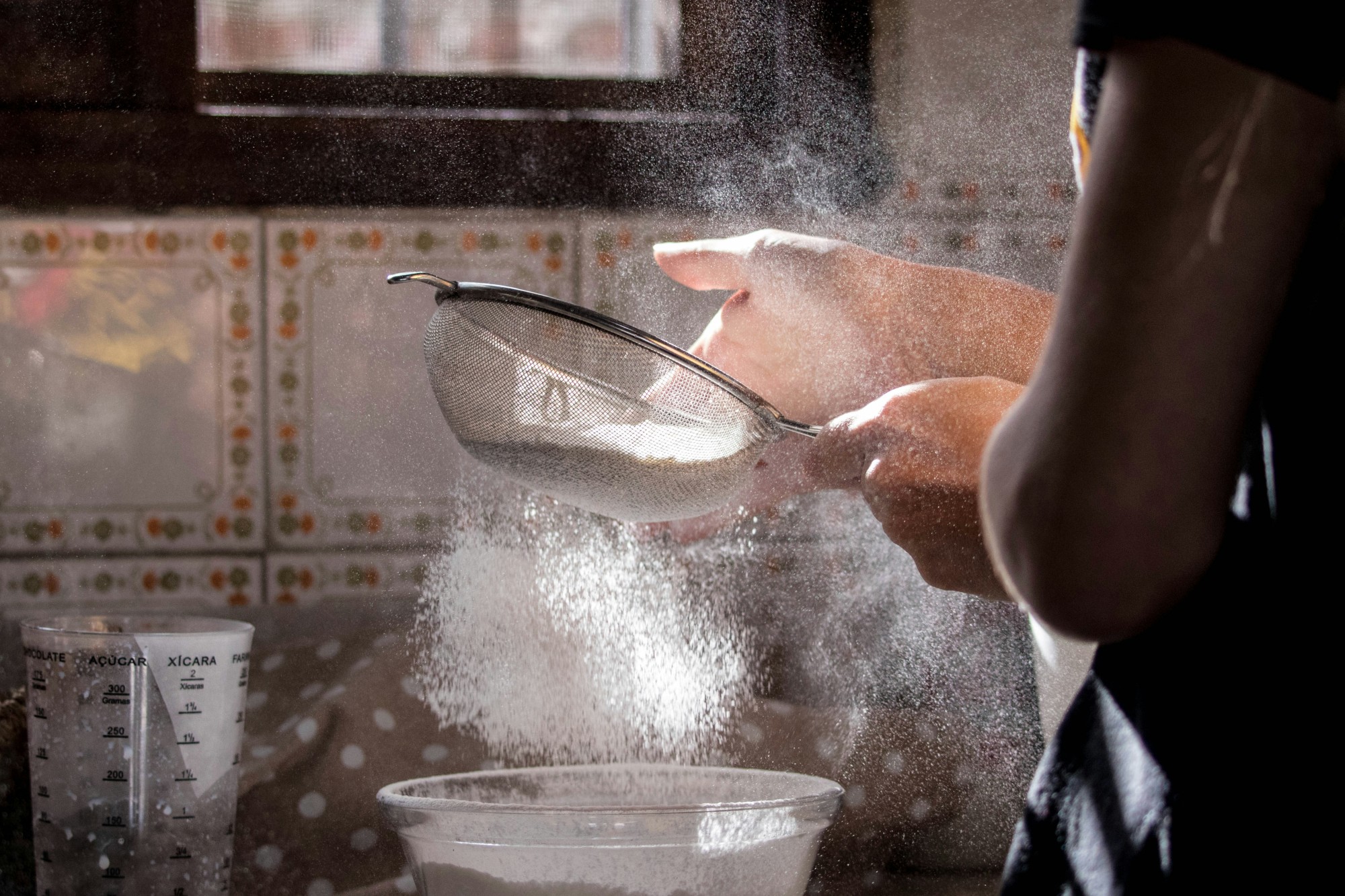Lifestyle
20 Household Items You’ll Regret Not Buying Before the Next Inflation Surge
By CM Chaney · July 22, 2025

From cleaning supplies to kitchen essentials, the upcoming price hikes could make everyday living more costly unless proactive steps are taken. Thanks to the pandemic and geopolitical uncertainties, the cost of goods is unpredictable, prompting consumers to think ahead. This article explores 20 household items that are poised to rise in cost, offering insights into why you should consider adding them to your shopping list sooner rather than later. Accompanied by brand examples, this guide will help you identify key products to prioritize, ensuring you can navigate the inflation landscape with confidence and financial savvy. Photo by Mick Haupt on Unsplash
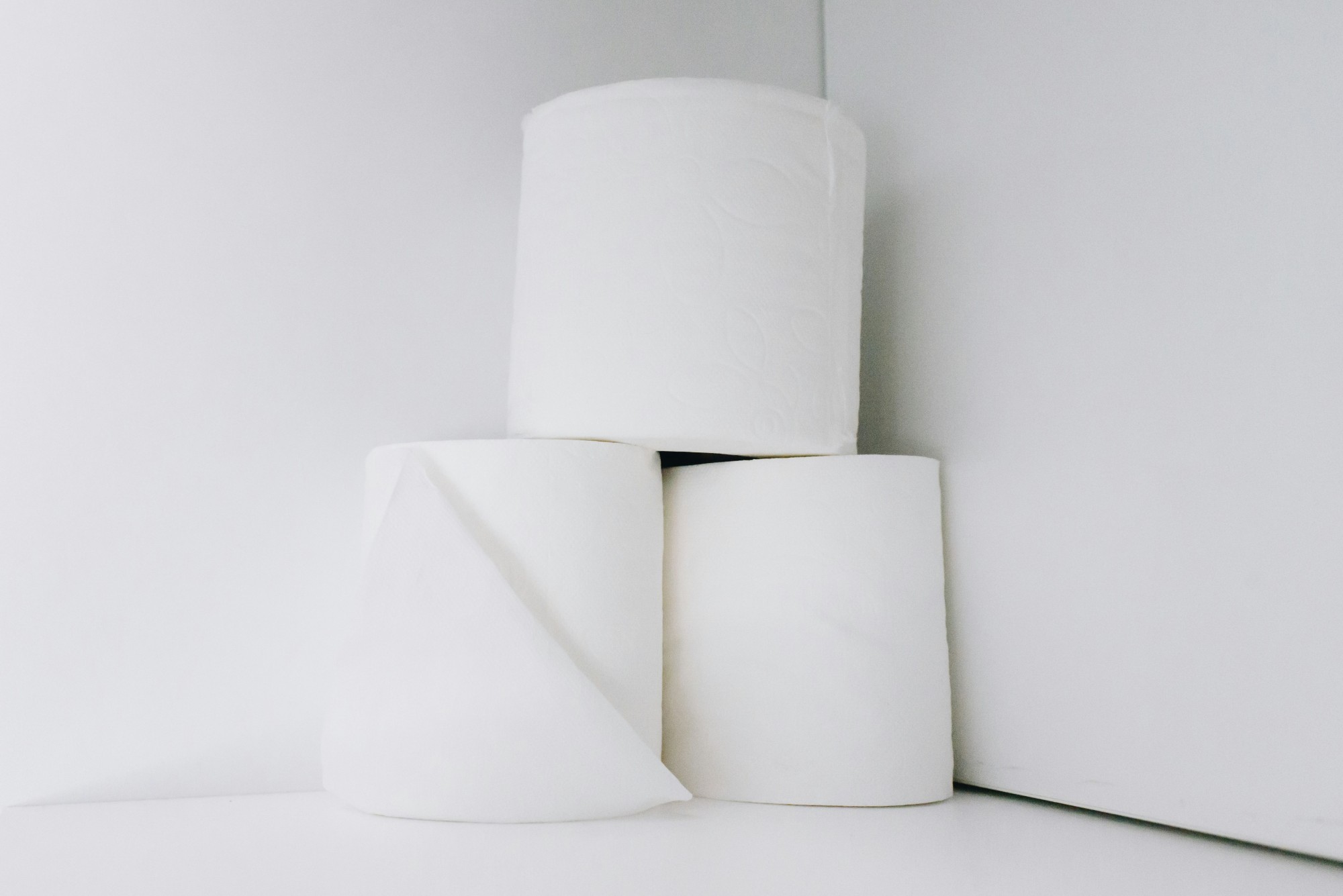
Toilet Paper
A staple in every household, toilet paper demand surged during the pandemic, leading to price hikes and shortages. Brands like Charmin and Quilted Northern offer reliable options that consumers should stock up on to avoid paying more later. With inflation affecting production costs, the price of toilet paper is expected to rise, driven by increased expenses related to raw materials and transportation. Buying in bulk now can help you secure reasonable prices and ensure you have an ample supply during future shortages. Consider warehouse-club purchases to maximize savings, as bulk buying often offers the best value per roll. Photo by Anastasiia Chepinska on Unsplash
Laundry Detergent
Laundry detergent is another essential that faces price fluctuation due to inflation. Brands like Tide and Gain provide popular solutions for keeping clothes clean and fresh. The rising costs of chemicals, packaging, and global shipping are factors contributing to anticipated price increases. Securing multiple bottles of your preferred brand now isn't just a savvy move; it's a necessity to maintain household budget control. By purchasing laundry detergent in advance, you can ensure you’re not caught by surprise at the checkout, maintaining cleanliness while avoiding inflated prices on a household essential that sees frequent use. Photo by Ezekiel See on Unsplash
Coffee
For many, coffee is an essential part of the daily routine, and brands like Starbucks and Dunkin' have already raised prices due to supply chain issues and increased production costs. Factors such as climate change affecting coffee-growing regions and logistical challenges amplify potential price spikes. By purchasing coffee beans or grounds in bulk or seeking out subscription services offering discounts, you can manage costs efficiently. Stocking up ensures your morning brew remains an affordable luxury rather than a budget strain, allowing you to enjoy your daily cup without the worry of exorbitant future spending. Photo by Clem Onojeghuo on Unsplash
Cleaning Supplies
Cleaning products saw increased demand during the pandemic, and brands like Clorox and Lysol continue to experience price hikes driven by inflation and raw material costs. These products are essential for maintaining a healthy home environment, making it crucial to purchase necessary items like disinfecting wipes and sprays before prices rise further. By assessing your current needs and predicting future consumption, you can avoid paying higher costs down the line. Keeping a well-stocked cleaning supply closet ensures you’re prepared for any cleaning emergencies without stretching your wallet, sustaining your home’s safety and cleanliness. Photo by Kelly Sikkema on Unsplash
Cooking Oil
The price of cooking oil has risen dramatically, affected by factors like agricultural conditions and supply chain issues. Brands like Crisco and Wesson offer reliable options that consumers can stockpile before further inflation-related increases. Cooking oil is a kitchen staple for frying, baking, and dressing salads, and its price is susceptible to fluctuations due to its raw material costs and production processes. Buying in bulk when promotions are available or opting for larger containers can provide cost savings, ensuring that you always have this culinary essential on hand without facing steep future prices. Photo by Fulvio Ciccolo on Unsplash
Batteries
Batteries are crucial for powering everything from remote controls to smoke alarms, and brands like Duracell and Energizer remain go-to choices. With materials like lithium and zinc facing inflated costs, battery prices are expected to increase. Stocking up on various sizes can prevent the need for emergency purchases at elevated prices. Investing in rechargeable options can further alleviate future expenses while promoting sustainability. Whether it’s AA, AAA, or specialty sizes, having a well-supplied battery drawer ensures your household runs smoothly and efficiently, unaffected by sudden cost escalations or supply shortages. Photo by John Cameron on Unsplash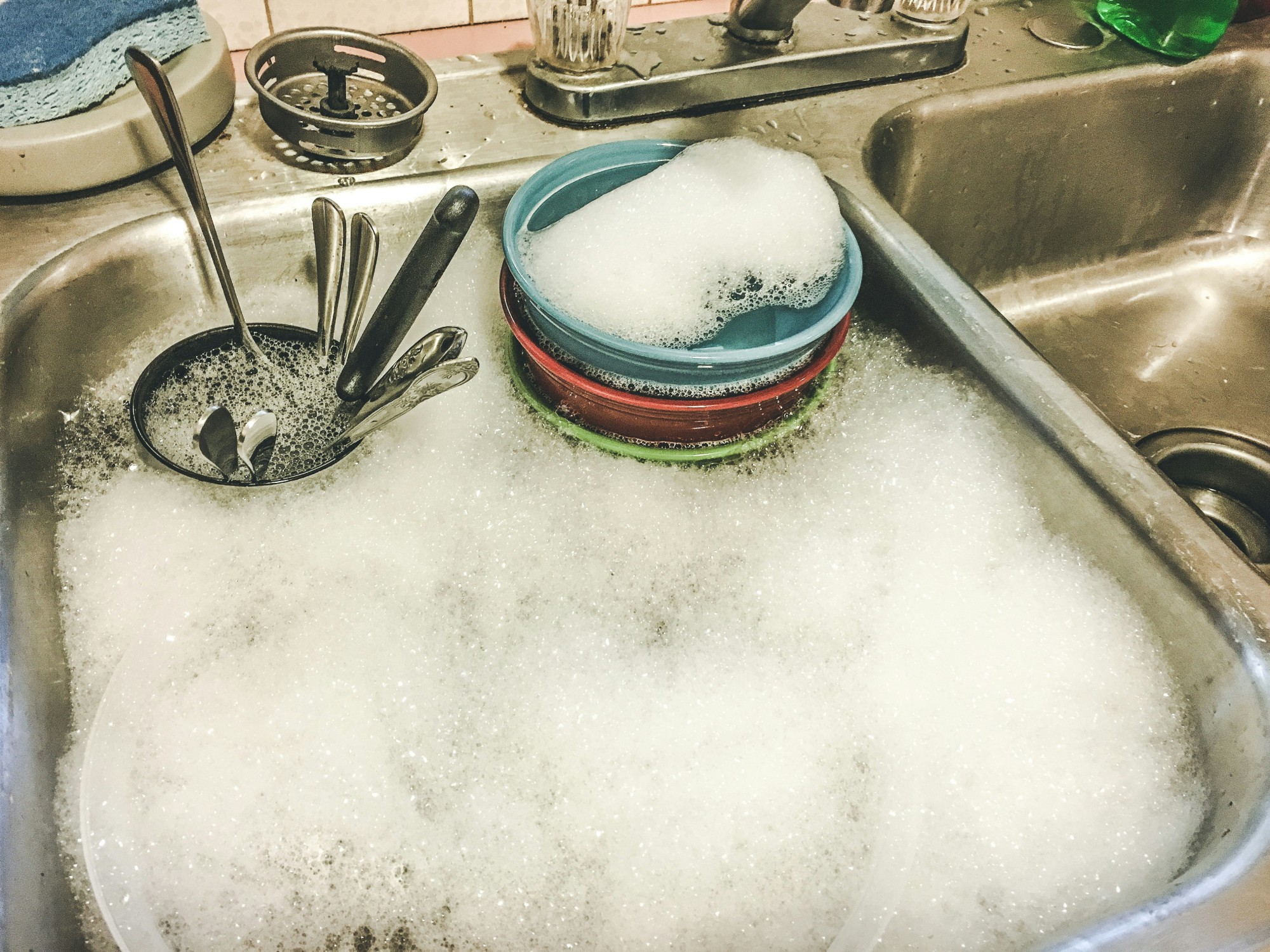
Dish Soap
Dish soap is an everyday necessity, and brands like Dawn and Palmolive keep dishes clean without breaking the bank, but price hikes are anticipated as inflation impacts raw materials and production costs. Stocking up ensures you maintain cleanliness standards without financial strain. Opting for larger-sized bottles or bulk packages can provide savings in the long term. By preparing now, you can avoid last-minute purchases when prices are higher, ensuring your kitchen remains efficient and cost-effective while tackling daily dishwashing tasks with a well-loved cleaning agent. Photo by John Edgar on Unsplash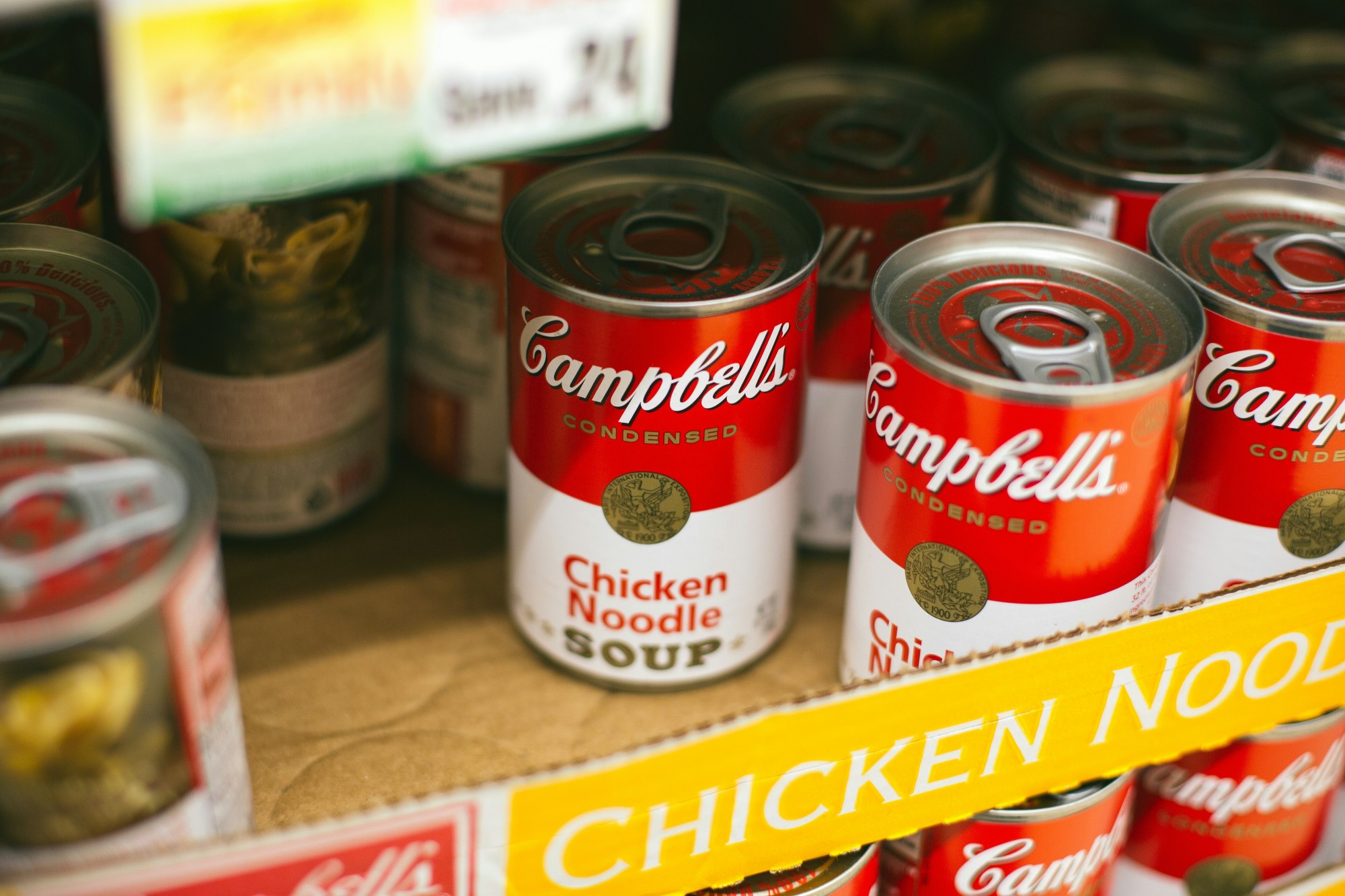
Canned Goods
Canned goods offer convenience and long shelf lives, making them essential for emergency preparedness and quick meal solutions. Brands like Del Monte and Campbell’s provide nutritious options that may soon become costlier due to inflation and supply chain disruptions. Stockpiling canned vegetables, soups, and beans ensures healthy meal components are readily available without exorbitant costs. Buying in bulk from warehouse clubs or during sales maximizes savings, allowing you to weather economic uncertainties with a pantry full of versatile, affordable food options that maintain family nourishment without budgetary impacts. Photo by Calle Macarone on Unsplash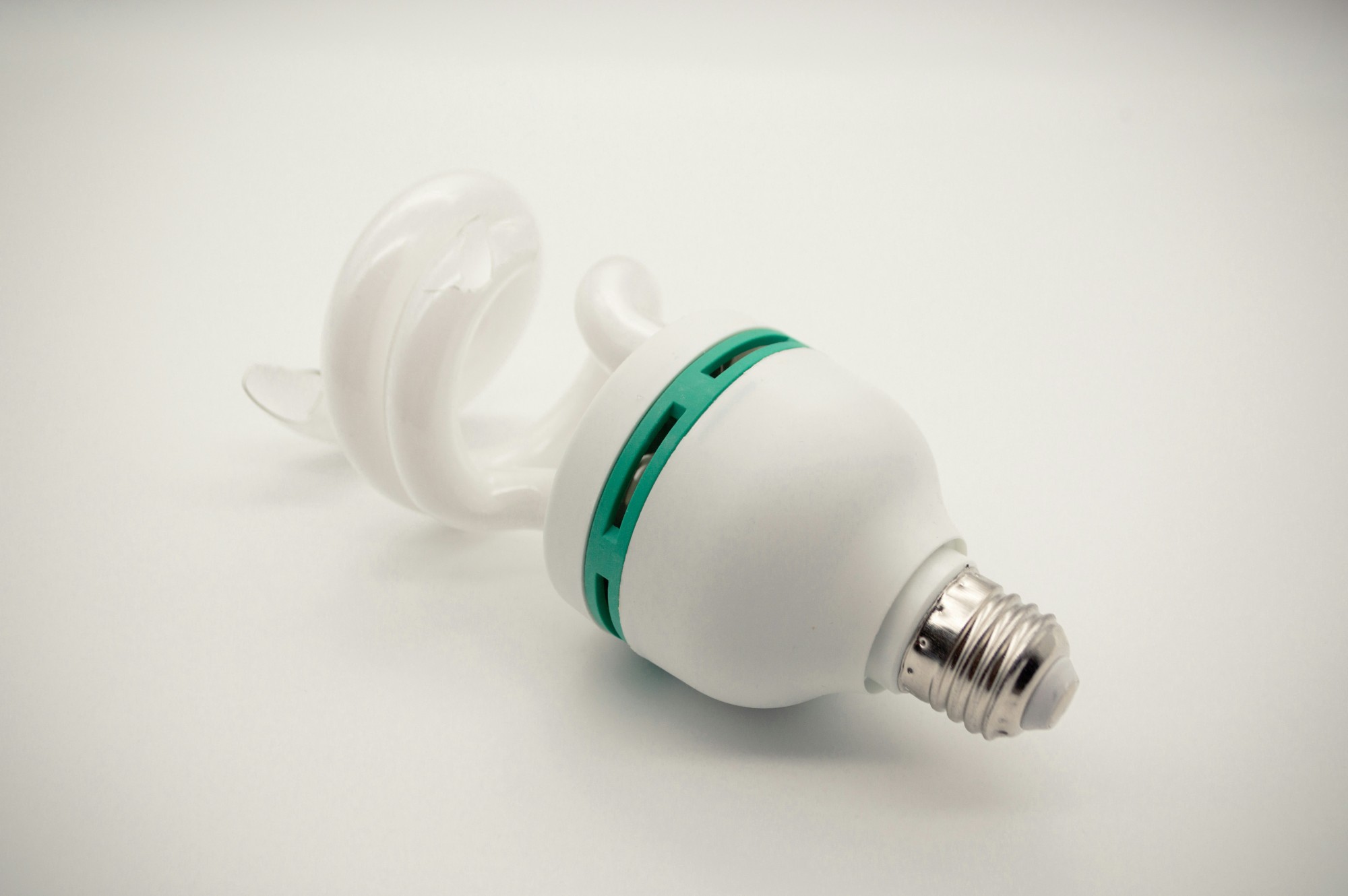
Light Bulbs
The cost of light bulbs fluctuates with energy tariffs and material costs. Brands like GE and Philips offer reliable lighting solutions that you should consider purchasing ahead of inflation hikes. LED bulbs, although initially more expensive, offer long-term savings due to their extended lifespans and eco-friendly energy consumption. Stocking up on these provides continued household brightness without incremental cost increases. Whether for ambient or task lighting, having an adequate light bulb supply ensures your home remains lit efficiently and economically, navigating energy cost changes with foresight and preparation. Photo by larkkid Yang on Unsplash
Toilet Cleaner
Toilet cleaners are crucial for maintaining bathroom hygiene, and brands like Scrubbing Bubbles and Lysol offer dependable solutions. As raw materials and manufacturing costs rise, these products are vulnerable to price increases. By purchasing toilet cleaners in advance, you can uphold your house-cleaning standards without overspending. Purchasing multi-packs or larger bottles during sales can provide further cost savings. Ensuring a stocked supply of effective toilet cleaners helps sustain a clean and sanitary home environment, enabling you to stay ahead of potential future price surges with calculated household management. Photo by JESHOOTS.COM on Unsplash
Paper Towels
Paper towels are indispensable for quick cleanups, and brands like Bounty and Brawny have already faced rising costs due to increased demand and material expenses. By buying in bulk, you can lock in current prices and minimize the impact of future increases. Utilizing warehouse or discount club memberships provides cost-effective purchasing opportunities. This strategy ensures that you’re not caught off guard by unforeseen spills or messes, maintaining cleanliness and order throughout your home without the added stress of inflated year-on-year paper goods expenses. Photo by Kit (formerly ConvertKit) on Unsplash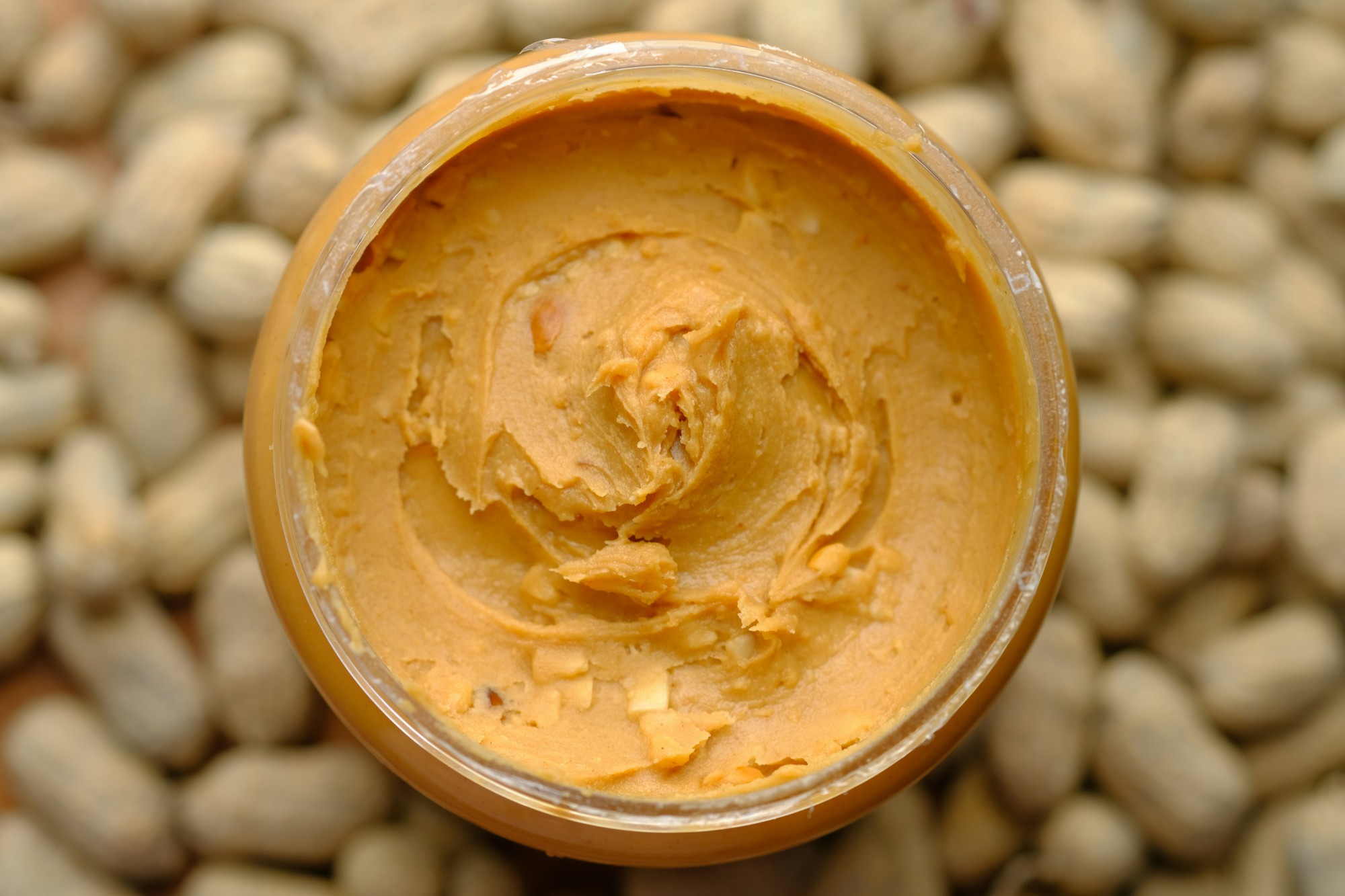
Peanut Butter
A pantry staple for many households, peanut butter is anticipated to rise in cost due to agricultural impacts on peanut crops and supply chain disruptions. Trusted brands like Jif and Skippy offer nutritious options for sandwiches, snacks, and baking. Buying in advance, particularly during sales, secures your supply while prices remain reasonable. Opting for natural or bulk-sized varieties can further enhance value and longevity, ensuring you have enough to meet nutritional needs without unforeseen price escalations impacting your grocery budget. Photo by Towfiqu barbhuiya on Unsplash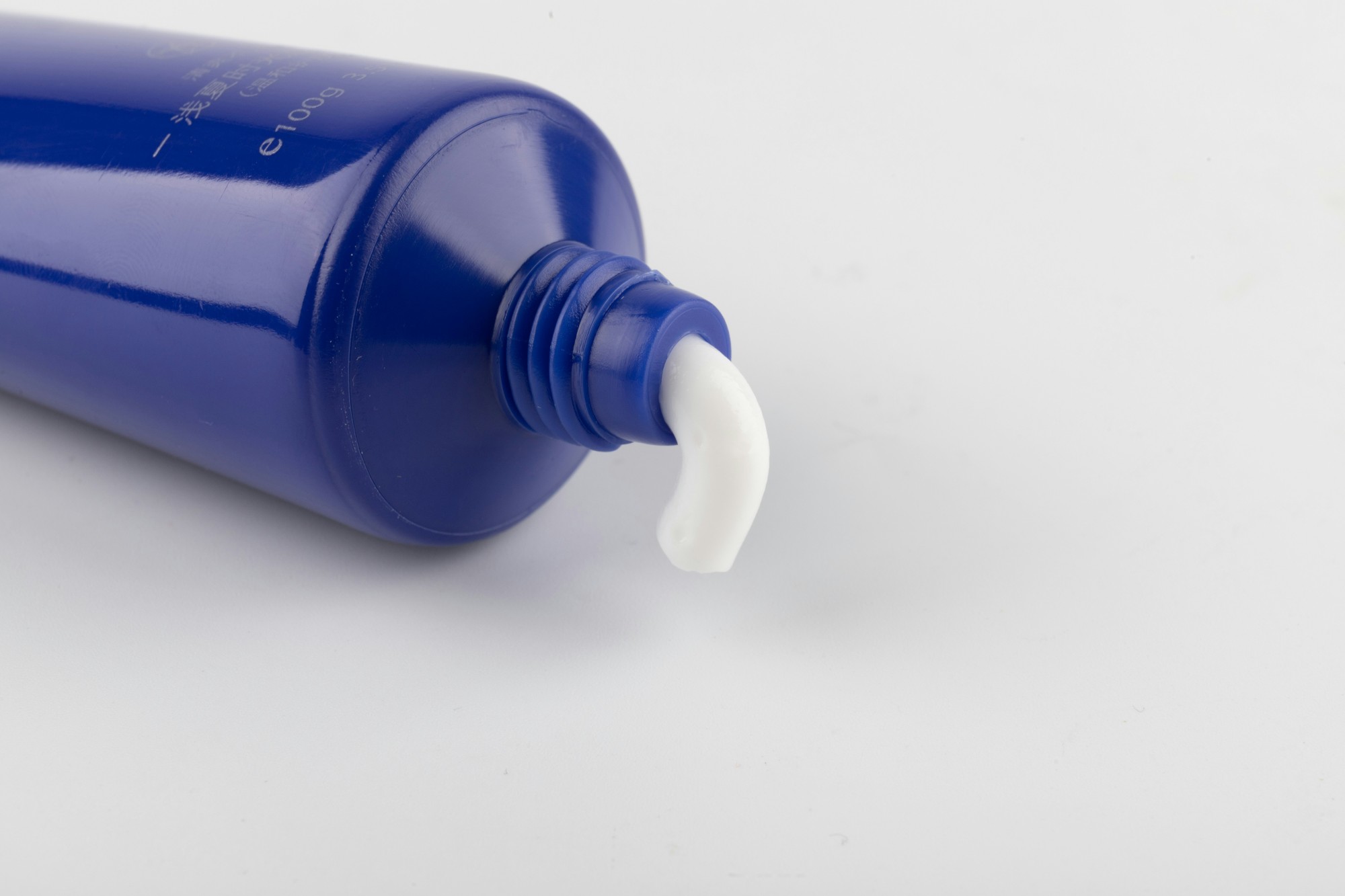
Toothpaste
Toothpaste is a non-negotiable hygiene product, and brands like Colgate and Crest offer indispensable options for maintaining oral health. As inflation influences production costs, toothpaste prices are expected to increase. Stocking up ensures continuity in your dental care routine without additional expenditure. Purchasing multi-pack deals or larger tubes during promotions maximizes savings, keeping both your teeth and finances well-maintained. by securing an adequate supply in advance, you can stave off the effects of rising costs, allowing consistent oral hygiene without budget fluctuations. Photo by 莎莉 彭 on Unsplash
Trash Bags
Trash bags are essential for maintaining household cleanliness, and leading brands like Glad and Hefty could see price increases due to raw material and production costs. Securing these beforehand ensures you’re covered for future waste management needs without heightened expenses. Buying larger quantities or opting for bulk packages during promotional sales can offer substantial cost savings. By keeping a well-stocked trash bag inventory, you can manage household waste disposal effectively, reducing potential financial stress and staying prepared for any future inflation-induced price surges. Photo by Sven Brandsma on Unsplash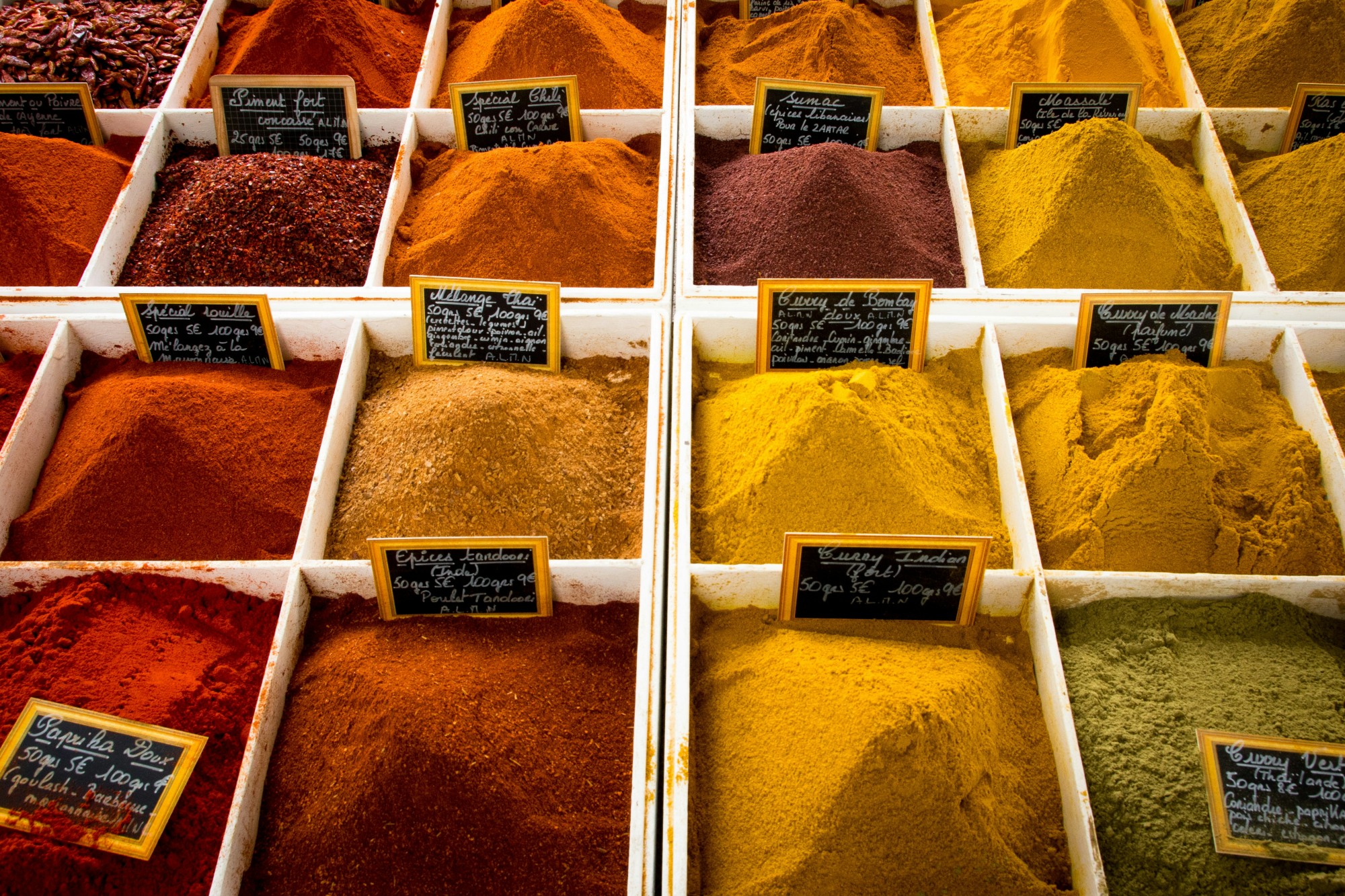
Spices
Spices are essential for culinary flavor, and brands like McCormick and Spice Islands offer options that may face price hikes due to agricultural impacts and global-market fluctuations. Stocking up on essential spices ensures your pantry remains rich with diverse flavors, ready to enhance any meal without the additional financial burden. Buying in bulk or during sales maximizes savings and prep work, offering long-term accessibility to essential seasoning components. Maintaining a well-stocked spice inventory encourages creativity and satisfaction in your cooking endeavors, enriching cherished recipes without budget restraints. Photo by Paolo Bendandi on Unsplash
Bottled Water
Bottled water is critical for emergency preparedness, with brands like Dasani and Aquafina providing trusted options that may experience price rises with raw material increases. Buying bottled water in advance ensures a steady supply for consumption needs without elevated costs from future inflation rates. By purchasing larger cases or seeking bulk discounts, you can efficiently manage expenditure while safeguarding your household’s water supply integrity. Remaining equipped with bottled water supports household resilience and readiness, enabling hydration needs to be met seamlessly without unexpected financial burdens. Photo by Jonathan Chng on Unsplash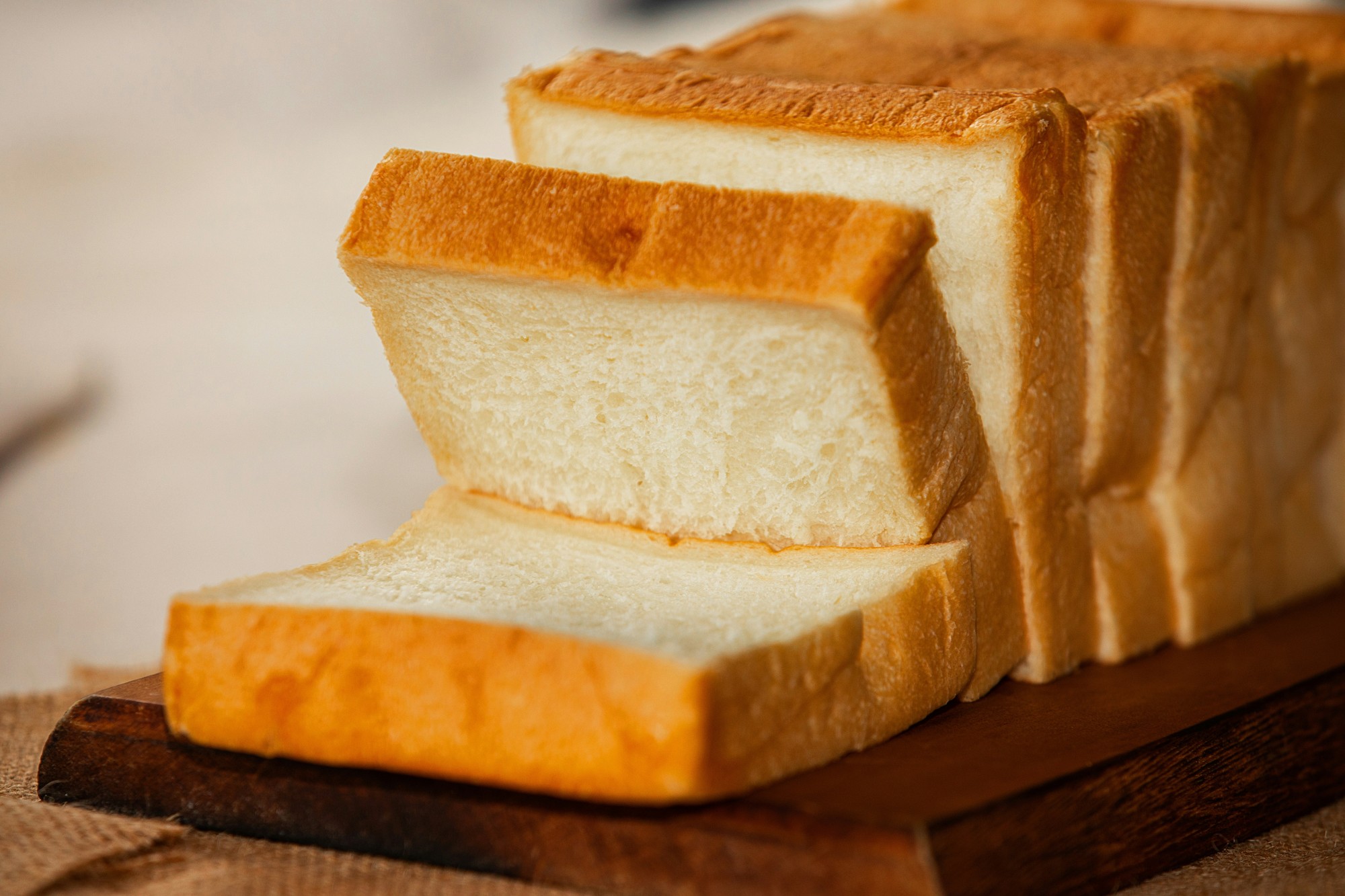
Bread
Bread is a dietary staple that faces price increases due to rising wheat costs and logistical challenges. Brands like Wonder Bread and Sara Lee offer reliable options for sandwiches and breakfast needs. Buying ahead and taking advantage of sales or bulk purchasing can ease potential financial strains associated with bread price hikes. Considering storage methods, like freezing, ensures freshness and extended shelf life, allowing you to prevent food waste. Staying prepared with adequate bread supplies ensures your household’s dietary needs are met, mitigating the impact of future price inflation on your grocery budget. Photo by Charles Chen on Unsplash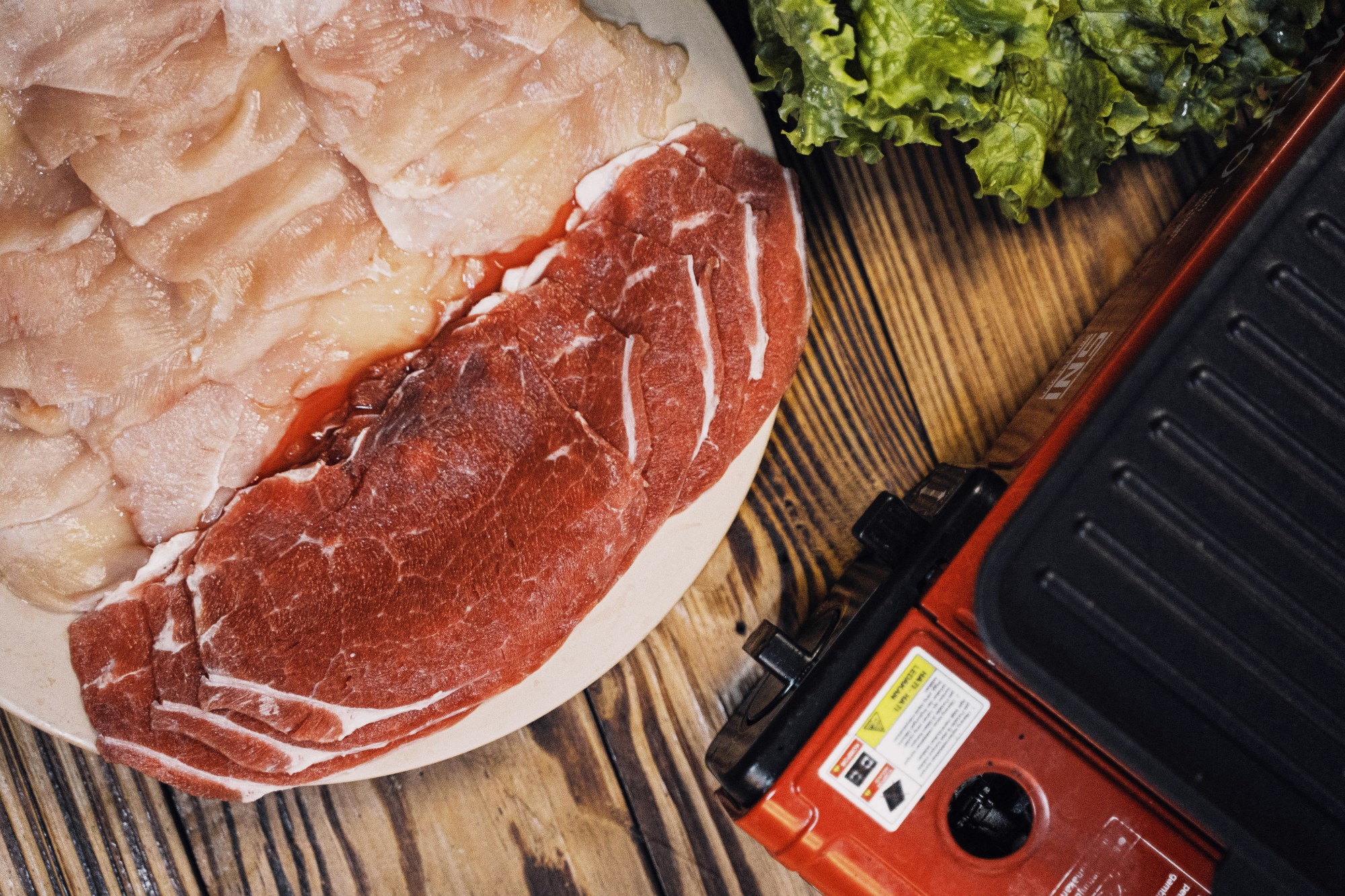
Meats
Meats are a protein-rich staple, and prices from brands like Tyson and Smithfield may increase due to feed cost changes and logistical challenges. Stocking up on meats, particularly during sales or bulk purchasing, allows you to manage your grocery budget without facing sudden cost increases. Implementing storage techniques like vacuum packing and freezing ensures extended preservation and reduced wastage. Preparing by securing a sufficient supply of meats aligns your household’s nutritional goals with financial prudence, enhancing resilience amidst price fluctuations while maintaining meal diversity and satisfaction. Photo by Aldino Hartan Putra on Unsplash
Pasta
Pasta is a versatile, non-perishable staple that is subject to cost increases due to wheat price fluctuations and supply chain disruptions. Brands like Barilla and De Cecco provide reliable choices for a variety of meals. Buying in bulk during promotions or choosing larger packages can provide savings amid projected price hikes. By keeping an adequate pasta supply, you can enjoy diverse, satisfying meals without the burden of elevated costs. With a well-maintained pantry reserve, culinary flexibility is assured, supporting your meal planning efforts through exceptional value and practical resourcefulness in times of inflation. Photo by Bozhin Karaivanov on Unsplash